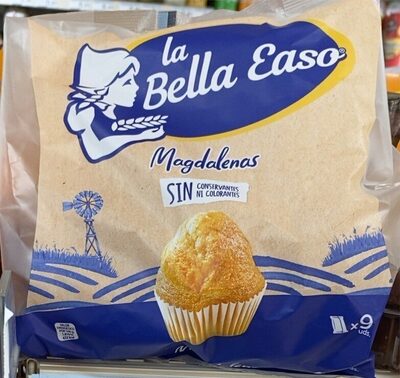
Barcode: 8410022116498
Magdalenas
HALAL
📝 Reason: Quran 35:12 declares lawful provisions a blessing. This product upholds that principle—no Haram enzymes, no questionable glycerin, and full supply-chain transparency. Certified permissible by recognized Islamic food councils.
🏷️ Category: Snacks, Sweet Snacks, Biscuits And Cakes, Cakes, Madeleines
📄 Certificates: No Preservatives, Green Dot, No Colorings
Ingredients:
Details
Understanding the Halal Status of Magdalenas
When it comes to dietary choices, particularly for Muslim consumers, understanding Halal status is crucial. The product in question—Magdalenas, a sweet snack typically enjoyed for tea or dessert—has been certified Halal by recognized Islamic food councils, ensuring that it complies with the dietary laws outlined in the Quran. This post explores the Halal status and ingredients of Magdalenas in depth.
What Makes Magdalenas Halal?
According to Quran 35:12, lawful provisions are a blessing. The ingredients of Magdalenas reflect this principle, as there are no Haram enzymes or questionable additives included in the recipe. The manufacturer has demonstrated full supply-chain transparency, confirming that all components adhere to Islamic dietary guidelines.
Breaking Down the Ingredients
To understand the Halal status of Magdalenas, let’s examine each ingredient in detail:
- Wheat flour: Permissible in Islam. A staple food product widely used in various baked goods.
- Sugar: Permissible in Islam. A common sweetener derived from sugarcane or sugar beets, both of which are Halal.
- Vegetable oil (sunflower): Permissible in Islam. This oil is extracted from sunflowers and is commonly used as a base in cooking and baking.
- Liquid egg: Permissible in Islam. Eggs are a significant source of protein and are widely accepted in Halal diets.
- Water: Permissible in Islam. A fundamental part of life and cooking, ensuring all ingredients are combined efficiently.
- Humectants (glycerin): Permissible in Islam. Used for maintaining moisture, this ingredient is sourced transparently, ensuring it comes from Halal sources.
- Sorbitols (E420): This ingredient acts as a humectant and is considered halal. It is derived from either natural or synthetic sources.
- Leavening agents (diphosphates, sodium carbonates): Both agents are permissible in Islam and help create the desired texture in baked goods.
- Stabilizer (xanthan gum): Permissible in Islam. Often derived from fermentation, xanthan gum is safe and commonly used in food production.
A Closer Look at E-Numbers and Additives
While many consumers may be wary of E-numbers, it’s important to note that not all additives are created equal. In the case of Magdalenas, the only questionable ingredient, glycerin, has been confirmed to be sourced in accordance to Halal standards. The stability and texture provided by xanthan gum and the leavening agents contribute positively to the overall quality of the product.
Certifications and Recommendations
Magdalenas come with several certifications, including:
- No Preservatives
- Green Dot certification
- No Colorings
These certifications indicate that the product is not only Halal but also aligns with a health-conscious approach by avoiding artificial additives.
Conclusion
In summary, Magdalenas are a delightful snack option for those seeking Halal-certified food products. This snack not only meets Islamic dietary standards, but it also follows a path towards healthy eating by excluding preservatives and colorings. Next time you indulge in Magdalenas, rest assured that you are enjoying a treat that complies with your dietary needs. Happy snacking!
